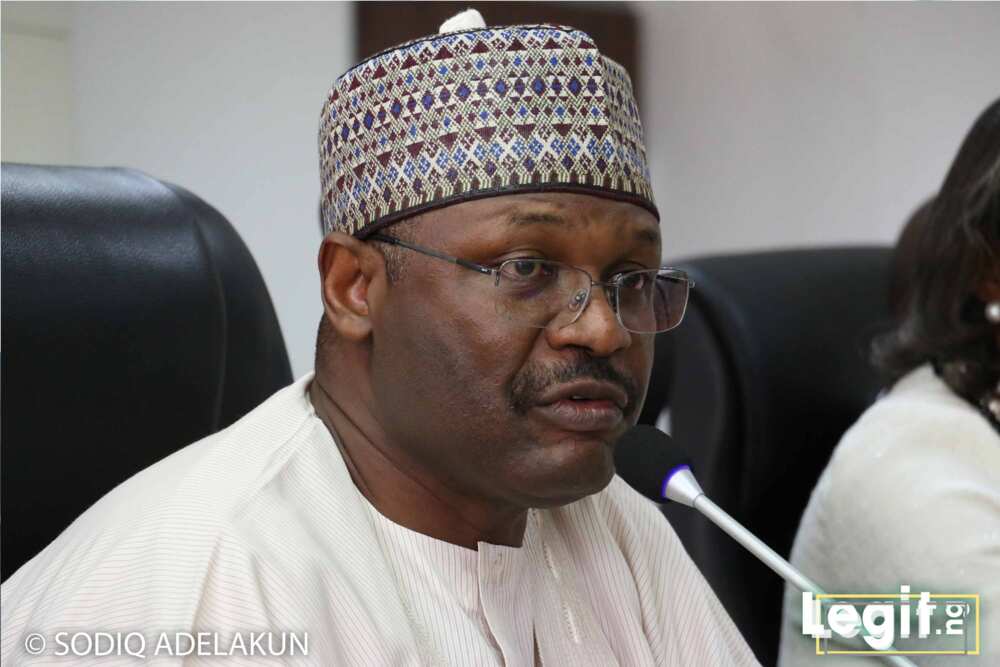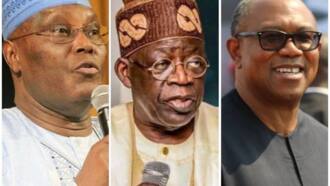Addressing the Consistent Inconsistencies in Nigeria’s Voter Register, by Olasupo Abideen
Editor's note: In this piece, Olasupo Abideen explains how the complacency of INEC over the years has continued to reflect in its attempt to reform the electoral system despite the deployment of technology.
PAY ATTENTION: Click “See First” under the “Following” tab to see Legit.ng News on your Facebook News Feed!
The revelation of inconsistencies and irregularities in the recently displayed voter register at registration area centres nationwide and on the Independent National Electoral Commission website is another primary reason why every eligible voter should participate in virtually every step of the electoral process.
It is fascinating how the Display, Claims and Objections (DCO) process hardly ever got the attention of Nigerians until recently due to increased voter education.

Source: Original
The process, which kicked off on 12th November 2022 and is scheduled to end on 25th, provides an opportunity for eligible voters to cross-check their voting information on the displayed register of voters in a bid to correct information, make claims and object to any unqualified persons found in the voter register.
The current display process generates many reactions from different quarters, with many revelations around underaged voters, duplications and deceased voters found on the voter register as displayed across Registration Area Centers nationwide and the website of INEC.
In the dark days of Nigeria’s electoral system, specifically between 2003 and 2007, voter registration was littered with all sorts of foreign names and objects in the name of potential voters.
This informed the overhaul of the entire voter register and the commencement of new registration nationwide under the chairmanship of Professor Attahiru Jega.
Thus, new technological innovations were deployed with every epoch of Continuous Voters Registration (CVR) to sanitise the voter register further.
One of such innovation deployed by the current election management body is the Automated Biometric Identification System (ABIS) and Automated Fingerprint Identification System (AFIS) to remove duplication on the voter register.
At least over 2 million voters were reportedly flagged as invalid during the just concluded registration process.
Thus, the commission should have immediately upgraded its technology to track double registrations during the biometric capturing process.
Ideally, as soon as a registrant biometric is captured, existing information with the same biometric should automatically pop up to enable an update to prevent duplications.
Since the commission now deploys technology for the process, it should also be able to run the entire voter information system to track the list of voters with the same biometric.
However, it is worrisome that the ongoing display of voter registers nationwide for claims and objections has also revealed more irregularity around duplications, especially underaged voters found online and offline on the register.
The cases of underage registrants (some of whom may have voted in previous elections) cut across all regions of the country. These possibly unqualified persons may have been on the register for years before the current process.
Underage registrants, as found on the voter register, no doubt happened during any CVR period from 2011 to date.
Ideally, suppose an INEC official in charge of voter registration notices a potential underage registrant.
In that case, they are expected to request evidence like a birth certificate to prove registration eligibility.
While in some cases, officials are guilty of being part of the violations, in other cases, community collaboration and different ways in which this is perpetrated may leave the officials at risk of being the only dissenting voice.
This is not an excuse to register an unqualified person into the voter register while leaving the responsibility of making objections to the citizens.
To make things more complicated, the process of making claims and objections on the voter register is complex. It can be likened to a judicial panel of inquiry where the claimant or anyone making objections must bring all necessary evidence to prove the ineligibility of another person from being on the register.
For instance, having visited the Registration Area Center to cross-check voting information, eligible voters contact the revision officer (who sometimes is not on the seat) to explain how to make any claim or objections.
This usually happens during the first week of the process, while the second week occurs at the various INEC Local Government Area Offices nationwide, where eligible voters also have to visit to register their claims or objections.
This is no doubt a complex and unattainable process looking at the complex process from a policy perspective.
While it is essential that voter registration can be accessed on the website, claims and objections still have to be made by providing sufficient evidence.
In this vein, there is a clear need to simplify the process of cleaning up the voter register if we expect citizens to lead in the process or, better still, standardise technological innovations to enable effective deduplication to enhance the quality of the voter register.

Read also
2023: Peter Obi supporters protest in Abuja, allege underage registration, vote-buying plot
Thus, not just the commission but citizens have a huge responsibility to prevent any form of violation of electoral law or manipulation of the registration process, as this will impact the conduct of elections.
Disclaimer: The views and opinions expressed here are those of the author and do not necessarily reflect the official policy or position of Legit.ng.
Your own opinion articles are welcome at info@corp.legit.ng— drop an email telling us what you want to write about and why. More details in Legit.ng’s step-by-step guide for guest contributors.
Contact us if you have any feedback, suggestions, complaints, or compliments.
Source: Legit.ng




